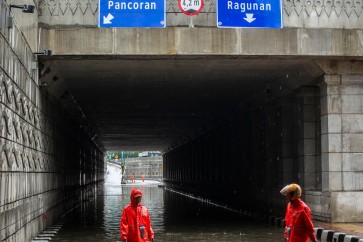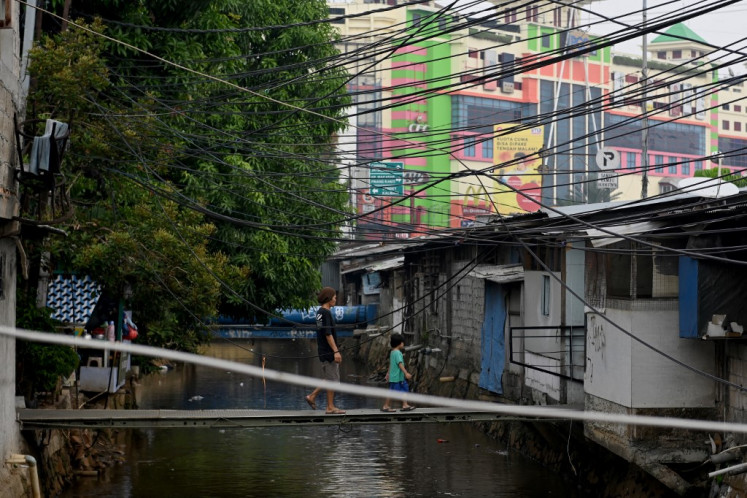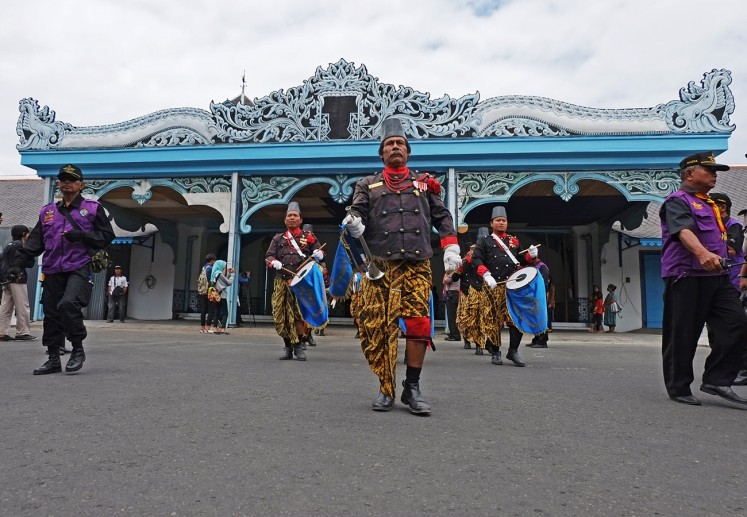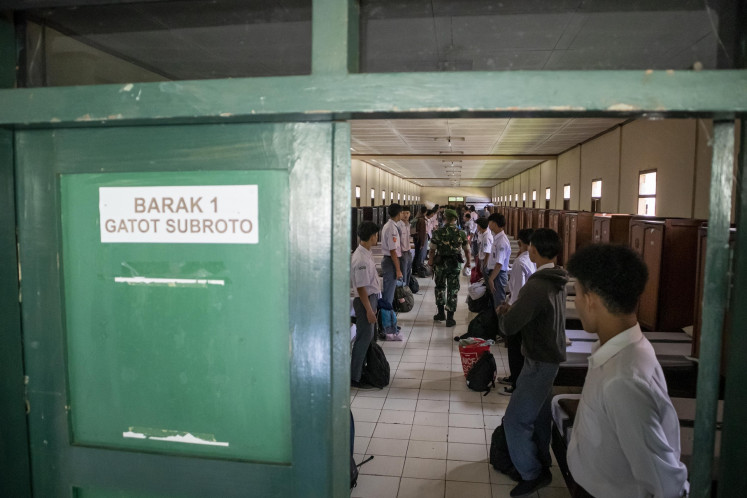Refugees in North Sumatra receive COVID-19 vaccine
After months of waiting, Mohammad Noor, a Rohingya refugee who currently stays at the Hotel Pelangi temporary shelter in Medan, North Sumatra, finally received his first COVID-19 vaccine on Wednesday.
Change text size
Gift Premium Articles
to Anyone
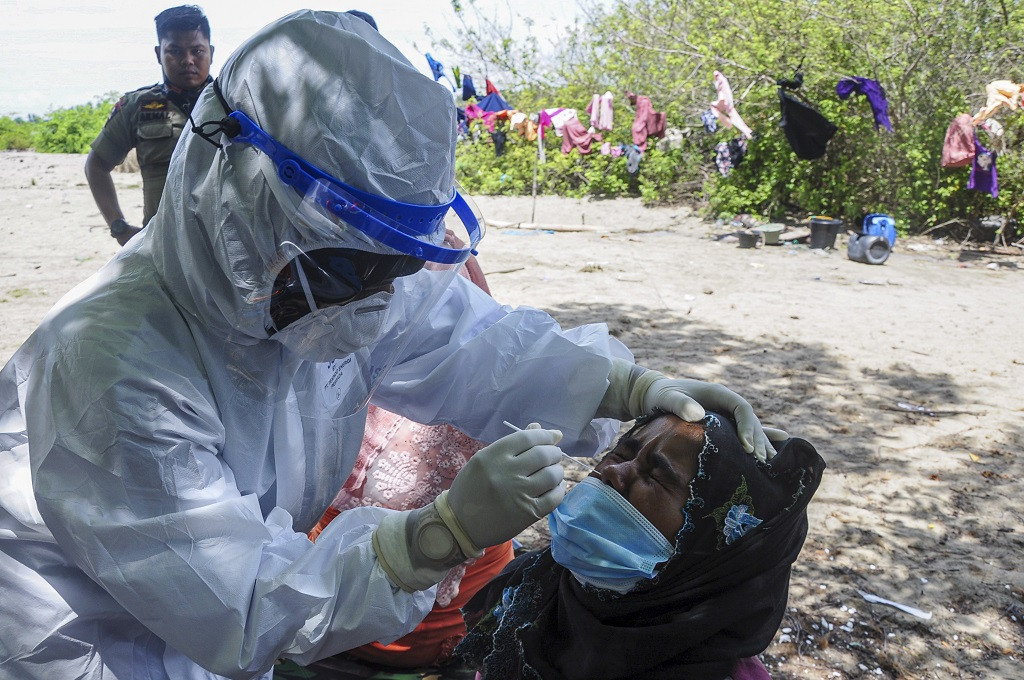
A
fter months of waiting, Mohammad Noor, a Rohingya refugee who currently stays at the Hotel Pelangi temporary shelter in Medan, North Sumatra, finally received his first COVID-19 vaccine on Wednesday.
He was one of more than a thousand refugees and asylum seekers in Medan who were receiving the first dose of Pfizer’s COVID-19 vaccine that day, in a vaccination event organized by the Medan Health Agency and the International Organization for Migration (IOM).
Indonesia is not a party to the United Nations 1951 Refugee Convention and therefore is not obliged to extend to the refugees and asylum seekers in the country the legal protection that it offers to its citizens. This has left them particularly vulnerable to contracting or spreading COVID-19 as the country does not have specific agencies to care for them as they wait, often for years, for their cases to be processed.
Read also: Systemic exclusion leaves refugees vulnerable to COVID-19
Noor said he was happy that he, along with his eight-month pregnant wife, had received the jab, saying that it had eased his concerns over potentially contracting the coronavirus disease.
“We have been waiting too long to get vaccinated, but now it’s no problem because we finally received it [the first COVID-19 vaccine shot]. This has put our mind at ease,” Noor told The Jakarta Post on Thursday.
Noor, however, added that he understood refugees and asylum seekers in the country were unlikely to get vaccines earlier as the Indonesian government’s first priority was to inoculate its own citizens.
Muhammad Juma, who is a refugee from Afghanistan, also echoed Noor’s sentiment, saying that he was happy to receive his first COVID-19 shot on Wednesday. He went on to add that around 400 Afghan refugees in Medan had been vaccinated, all of whom were adults.
The refugees and asylum seekers are set to receive their second dose on Dec. 29.
Medan Health Agency’s head of disease control and environmental health Mutia Nimpar said the agency had inoculated as many as 1,300 refugees and asylum seekers in Medan during Wednesday’s event, adding that the Pfizer vaccine was selected because it was recognized by more countries compared to other brands.
“The Pfizer brand gets more international recognition, which is why we decided to use it to inoculate refugees, who came from many countries,” said Mutia.
Mutia said six teams from local community health centers (Puskesmas) were deployed to inoculate the refugees and asylum seekers during Wednesday’s event, adding that local authorities were also coordinating with the Health Ministry to ensure that records of vaccination for the refugees and asylum seekers were logged in the ministry’s system.
Mutia reassured that the children of the refugees and asylum seekers would also be inoculated, considering that the government had already allowed inoculation for children aged 12 and older, but added that the agency was waiting for directives from the central government before commencing the rollout of vaccines for the children.



